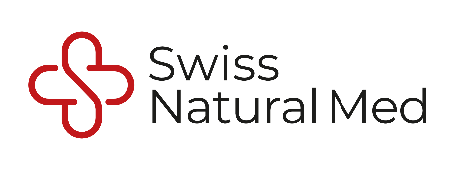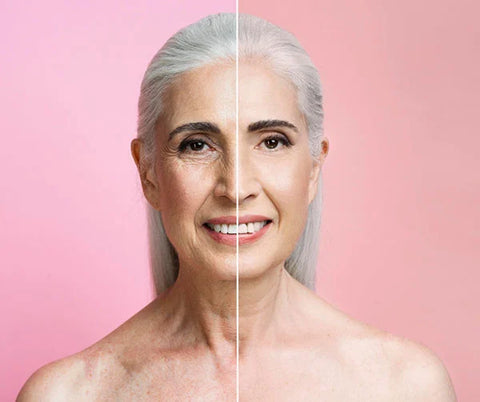The Secret to Young Skin: Choose the Best Collagen
Collagen, often touted as the secret to youthful, radiant skin, has become one of the most sought-after supplements in many anti-aging strategies.
But behind this growing popularity is there a valid reason for his triumph or is it
Is this simply another passing fad that will fade away over time?
It is indisputable that collagen, a key protein in our bodies, plays an essential role in maintaining skin elasticity, joint health, and even hair and nail growth.
The fame of collagen has prompted many people to seek out collagen supplements to combat the signs of aging.
However, it is important to know how to distinguish quality products from low-quality products, also because the price is not always a reliable indicator, as behind the lower prices there is often an unpromising reality: low-quality collagen content, poorly absorbable and therefore not very effective.
In this article, we will find out what collagen is, what it is used for, what its benefits are, and how to distinguish between valid products and those that offer empty promises.
What is collagen?
Collagen is an ancient term coined to refer to the natural adhesive obtained by cooking animal bones.
However, it is a derivation from the Greek κόλλα (kólla or “glue”) and -γενής (-genḗs or “producer”).
Collagen is the most abundant protein in the human body and plays a crucial role in our health and beauty. This extraordinary molecule is mainly composed of three key amino acids: glycine, proline, and hydroxyproline , representing 33%, 22%, and 22% of its primary structure, respectively.
This extraordinary complexity makes collagen an essential element in a wide range of tissues and organs in our body. Its versatility is demonstrated by the presence of almost 28 different types of collagen , each specialized in a specific function.
Collagen makes up 75% of our skin and:
- Provides its structure and support
- Maintains its elasticity
- It hydrates by attracting hyaluronic acid
As you age, the balance between collagen synthesis and degradation is disturbed. This means that both the quantity and quality of collagen decrease. Your skin becomes thinner, dehydrated and loses its structure.
The result: visible signs of aging, such as wrinkles, sagging skin, and dullness.
Collagen loss begins to take effect between the ages of 18 and 29 , but it is after age 40 that the body begins to experience significant loss, which can reach up to 1% per year. By the time you reach your 80s, collagen production in your body can decrease by 75% overall compared to young adults .

What is collagen used for?
Collagen plays a crucial role in the structure and function of various tissues.
Found in skin, bones, tendons, ligaments and other connective tissues, collagen contributes to strength, elasticity and structural support.
It also maintains the elasticity of the skin , contributes to the stability of the joints , forms the walls of blood vessels and participates in the structure of the teeth.
Its importance extends to wound healing and the overall health of the body's tissues.
Over 90% of collagen in the body is Type I , which is the most common and is often associated with tissues such as skin, nails, hair, bones, teeth, tendons, ligaments, vascular ligands, and organs.
In the case of Type II collagen, its presence is predominant in cartilage, contributing to their stability and resistance.
Type III collagen, on the other hand, is found primarily in the skin, muscles, and blood vessels, playing an essential role in their structure and function.
Type IV collagen is located in the epithelial secretory layer of the basement membrane and basal lamina. Finally, Type V collagen is a key component of cell surfaces and the placenta.

How to tell if you have low collagen levels?
While it is not possible to directly measure collagen levels, it is possible to recognize signs of its decline. Collagen decreases as we age, contributing to:
- Wrinkles and creased skin
- Stiffer and less flexible tendons and ligaments
- Muscles that contract and weaken
- Joint pain or osteoarthritis caused by the wearing away of cartilage
- Gastrointestinal problems due to thinning of the lining of the digestive tract
What foods are rich in collagen?
The specific collagen content of foods can vary, and not all foods provide significant amounts of this protein. Here are some foods that are often considered to be high in collagen:
1. Bone Broth : Bone broth, made by slowly cooking animal bones, preferably organic, at a low temperature, is often cited as a rich source of collagen.
Alternatively, collagen can also be extracted by cooking fish bones. You can drink this broth directly or use it in other dishes.
2. Chicken Skin : Chicken skin is a good source of collagen, especially when cooked using methods that preserve this protein, such as slow cooking.
3. Fish and seafood : Some types of fish, such as salmon and sardines, and seafood in general, contain collagen.
4. Lean Red Meat : Lean red meat can contain significant amounts of collagen, especially when cooked at low temperatures and using slow cooking methods.
5. Eggs : Eggs, especially the yolk, contain nutrients that can support collagen production in the body.
Read also 👉 A balanced diet is no longer enough to feel good
Benefits of collagen
Collagen is the most prevalent protein in the human body, performing several very important functions; its loss or impairment can contribute to skin aging and several diseases.
This process is influenced by various factors, including the action of free radicals in the body, a diet deficient in micronutrients, smoking, alcoholism, and diseases that can impair collagen synthesis.
Should I get collagen through diet or supplements?
Collagen can be obtained through our diet, but given the deficiency in some diets and in many foods we consume daily, considering taking a supplement can be considered a valid choice, as it offers greater precision in selecting the specific type of collagen, in the most practical format for our needs and in the precise dosage compared to eating foods rich in collagen.
If you decide to follow a collagen-rich diet, it is essential to consider several variables.
Do I have enough enzymes to break down whole collagen in the foods I eat?
Does my diet provide enough minerals and vitamins to support effective collagen formation?
Additionally, it is important to evaluate the actual amount of collagen present in foods, as this can vary greatly even within the same food group.
Often, the decision to opt for a collagen supplement is motivated by the precision of dosages and the desire to avoid the intake of other substances contained in collagen-rich foods, which may not provide a health advantage.
Do you want to know what the right diet is to get the correct levels of collagen?
Access our online nutritional test now to receive specific nutritional advice and a personalized meal plan that will help you live a healthy life.
Take control of your life and adopt a proactive approach to health and nutrition.
GO TO THE NUTRITIONAL TESTWhat is the best collagen supplement?
Bovine collagen is the most widely used in supplements due to its affordability. However, due to growing concerns about bovine-related communicable diseases, bovine collagen is losing popularity. In response to this trend, there is a growing interest in marine collagen .

Currently, most collagens available on the market are of animal origin, mainly from cattle, but some also exist from pigs, poultry, eggshells and fish.
Marine collagen is gaining popularity as an alternative, overcoming religious limitations and concerns about bovine zoonotic diseases. In general, hydrolyzed marine collagen peptides, with a molecular weight of 2kDa , are currently considered the best available on the market.
To benefit from taking collagen, it is essential to understand the 5 main factors that determine its effectiveness:
- Source of origin: Fish, Beef, Pork
- Collagen Type: Type I-II-III-IV-V
- Size/molecular weight: 2-300 KDa
- Extraction and hydrolysis method: enzymes, acidic substances, alkaline substances, ultrasound
- Form used: powder, liquid, solid, gel, capsules, tablets
Marine Collagen
Marine organisms such as fish, jellyfish, sponges and other invertebrates host a significant source of collagen and are highly advantageous compared to other sources, as they are metabolically compatible, have no religious constraints and are free of animal pathogens. These factors make marine sources of collagen a much safer, simpler and promising alternative.
Marine collagen peptides are produced from collagen through chemical and enzymatic hydrolysis and their lower molecular weight increases their water solubility, making them more absorbable.

What is hydrolyzed collagen?
Collagen peptides also called hydrolyzed collagen , are the result of the breakdown of collagen by an enzyme. The enzyme cuts the large 300 kDa collagen molecule into small fragments (peptides) of 2-10 kDa in this way it becomes easily digestible and absorbable.



How much collagen should you take per day?
The suggested dose for native collagen is 40 mg/day compared to hydrolyzed collagen, which generally ranges between 2 and 10 g/day. Therefore, if you opt for a supplement based on hydrolyzed collagen, it is crucial to look for formulations that improve its availability , thus allowing the intake of a smaller and more practical quantity to obtain the same efficacy.
Plant Collagen: Does It Really Exist?
In addition to collagens derived from natural animal sources, several approaches to producing " non-animal collagen " have been explored, both through chemical synthesis and biotechnological means.
Despite recent advances in replicating the structure of natural collagen, synthetic collagens remain significantly simplified compared to naturally occurring collagen.
Recombinant DNA technology was introduced in the 1990s as an alternative to synthetic methods for obtaining non-animal collagen.
Although several systems for producing recombinant collagens have been described, large-scale production of collagen through genetic engineering is still limited .
Currently, only a few yeast cells and transgenic plants are used to produce recombinant collagen, mainly for specific biomedical applications.
Today we talk about " vegan collagen " or " vegan collagen builder " but these products are mainly composed of a blend of ingredients, including plant extracts, amino acids, vitamins and minerals .
While some research has highlighted the role of micronutrients such as vitamin C, copper, or zinc in collagen biosynthesis, it should be noted that, to our knowledge, no product labeled as "vegan collagen" actually contains collagen in the ingredient list.

Side effects and contraindications of collagen
Collagen supplementation is generally safe and no adverse events have ever been reported.
Collagen is a key building block for the health of the human body, present in a wide range of tissues, including bones, tendons, ligaments, hair, skin and muscles. Maintaining and maintaining adequate levels of collagen in the body is essential to ensuring good health and a youthful, vital appearance throughout the years.
However, with aging, the skin experiences a process of morphological, structural and functional deterioration.
Our advice to counteract the reduction of collagen over the course of life is of course to adopt a healthy lifestyle.
This includes reducing alcohol consumption and smoking, getting enough sleep of 7-8 hours, staying properly hydrated, and eating a healthy diet, preferably rich in foods that contain collagen.
In addition to a healthy lifestyle, you can also consider using a supplement like the one developed by us at Swiss Natural Med.
IDRACELL uses marine collagen based on low molecular weight hydrolyzed peptides, one of the best raw materials on the market, characterized by high absorbability and metabolic compatibility.
The formulation also includes highly absorbable hyaluronic acid to optimize its bioavailability.
In this formulation it was decided to include one of the best raw materials on the market, collagen “Peptan F2000 HD” combined with a highly bioavailable hyaluronic acid .
Try IDRACELL now 👇
Buy NowSources:
- Molecules. 2019 Nov; 24(22): 4031. doi: 10.3390/molecules24224031 Hydrolyzed Collagen—Sources and Applications
- Nutrients. 2023 Mar; 15(6): 1332. doi: 10.3390/nu15061332 Collagen Supplementation for Joint Health: The Link between Composition and Scientific Knowledge
- Mar Drugs. 2022 Jan; 20(1): 61. doi: 10.3390/md20010061 Marine Collagen: A Promising Biomaterial for Wound Healing, Skin Anti-Aging, and Bone Regeneration
- Polymers (Basel). 2021 Nov; 13(22): 3868. doi: 10.3390/polym13223868 A Review of the Effects of Collagen Treatment in Clinical Studies



